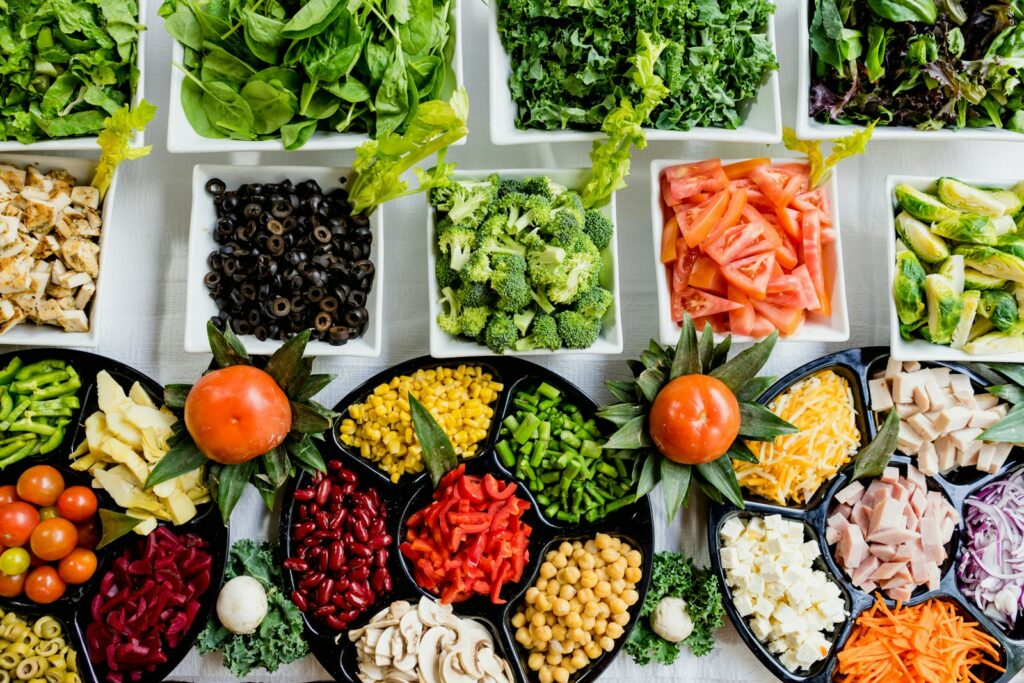While synthetic and lab-grown foods offer promising solutions to some of the most pressing challenges facing our global food system, they also evoke strong skepticism, ethical dilemmas, and practical hurdles. Balancing the benefits against the concerns requires open dialogue, continued research, and thoughtful consideration of the diverse implications of these food technologies.
Food security encompasses not just the availability of food but also access to nutritionally adequate and safe foods and the ability to utilize such food consistently. Despite advancements in agricultural technologies, millions worldwide still face food scarcity, malnutrition, and the consequent health issues. The challenges are multifaceted: climate change, loss of biodiversity, water scarcity, and the degradation of land resources, all exacerbated by the relentless growth in population.
As the global population edges closer to the 10 billion mark by the middle of the 21st century, the challenge of ensuring food security and accessibility for all becomes increasingly urgent. Current agricultural practices, heavily reliant on finite resources and vast tracts of arable land, are straining under the pressure of environmental changes and growing demand. In this context, the emergence of synthetic and lab-grown foods presents a promising solution, potentially revolutionizing the way we produce and consume food.
 The future of food is on the cusp of a revolutionary shift with the advent of synthetic and lab-grown food options. This burgeoning field, sitting at the intersection of technology, nutrition science, and environmental ethics, offers a promising avenue to reimagine our food systems in the face of mounting challenges. From lab-grown meats to algae-based proteins and beyond, the development of these novel food sources has the potential to transform our diets, address pressing ethical concerns, and significantly reduce our ecological footprint.
The future of food is on the cusp of a revolutionary shift with the advent of synthetic and lab-grown food options. This burgeoning field, sitting at the intersection of technology, nutrition science, and environmental ethics, offers a promising avenue to reimagine our food systems in the face of mounting challenges. From lab-grown meats to algae-based proteins and beyond, the development of these novel food sources has the potential to transform our diets, address pressing ethical concerns, and significantly reduce our ecological footprint.
The development of synthetic and lab-grown foods has sparked a significant debate, encompassing a wide range of skepticism, ethical concerns, and production challenges. These innovative food technologies, while offering solutions to environmental sustainability, food security, and ethical issues associated with traditional animal farming, also face considerable opposition. Understanding the roots of this skepticism and the ethical dilemmas posed is crucial for navigating the future of food production.
Skepticism and Opposition
Perceived Naturalness: One of the primary sources of skepticism towards synthetic and lab-grown foods is the concern over their “unnatural” origin. Many consumers question the safety and nutritional equivalence of foods not produced through traditional agricultural methods, fearing potential long-term health impacts that have yet to be fully understood or studied.
Cultural and Emotional Ties: Food is deeply embedded in cultural identity and personal beliefs. For many, the idea of consuming meat that hasn’t come from an animal or food products created in a laboratory feels fundamentally wrong or unsettling, challenging deeply held convictions about what food should be.
Flavor and Quality: There are also doubts about whether synthetic and lab-grown foods can truly replicate the taste and texture of traditional foods. The sensory experience of eating is a crucial aspect of food enjoyment, and any perceived compromises in flavor or quality could deter widespread acceptance.
Ethical Concerns
Animal Welfare: While the development of lab-grown meat is often motivated by a desire to reduce animal suffering, there are still ethical concerns regarding the source of initial cells and the use of fetal bovine serum in the cultivation process. Though alternatives are being developed, ethical debates continue about the extent to which these foods are truly free from animal exploitation.
Socio-Economic Impacts: The potential displacement of traditional farming communities raises significant ethical questions. If synthetic and lab-grown foods become dominant, there could be profound socio-economic consequences for farmers, rural communities, and others who depend on the agricultural sector for their livelihoods.
Production Challenges
Scaling and Costs: Although progress has been made, scaling up production of synthetic and lab-grown foods to meet global demand remains a significant challenge. High production costs currently limit accessibility and affordability, contradicting the goal of creating a more equitable food system.
Resource Use: While touted as more sustainable, the production of lab-grown foods still requires energy and resources. The overall environmental impact, including energy consumption and the sourcing of growth mediums, needs further evaluation to ensure these methods offer a net benefit over traditional farming.
Regulatory Hurdles: The path to market for synthetic and lab-grown foods is complicated by the need for rigorous safety testing and approval by regulatory bodies. Establishing standards and regulations that ensure safety while fostering innovation is a delicate balance.
Arguments For and Against Synthetic and Lab-Grown Foods
| For Synthetic and Lab-Grown Foods | Against Synthetic and Lab-Grown Foods |
|---|---|
| Environmental Sustainability: Less land, water, and energy use, and reduced greenhouse gas emissions. | Perceived Unnaturalness: Concerns over the “artificial” production process and its long-term health impacts. |
| Ethical Benefits: Potential to reduce animal suffering and exploitation in the food production process. | Cultural and Emotional Concerns: Resistance based on traditional views of food and its cultural significance. |
| Food Security: Could provide a stable, climate-independent source of nutritious food. | Flavor and Quality Doubts: Skepticism about the ability to replicate the sensory qualities of traditional foods. |
| Nutritional Optimization: Possibility to enhance nutritional profiles and address deficiencies. | Socio-Economic Impacts: Potential negative effects on traditional farming sectors and rural economies. |
| Innovation and Progress: Represents technological advancement and a forward-looking approach to food production. | Scaling and Cost Challenges: High production costs and uncertainties regarding scalable solutions. |
The emergence of synthetic and lab-grown foods is transforming the landscape of food production, with the potential to provide sustainable, ethical, and diverse dietary options. However, as with any novel food technology, there are considerations and potential risks regarding health implications that need careful evaluation. Understanding these is crucial for consumers, producers, and regulators alike to ensure that the benefits of these innovative foods are maximized while minimizing any adverse effects.
The shift towards synthetic and lab-grown foods also brings a range of ethical and environmental benefits. By reducing reliance on livestock farming, we can alleviate the ethical concerns associated with animal welfare in the food production industry. Moreover, these technologies promise a reduction in the environmental impacts of food production, including greenhouse gas emissions, deforestation, and biodiversity loss, contributing to the efforts to combat climate change and preserve our planet for future generations.
While synthetic and lab-grown foods hold great promise for the future of nutrition, understanding and mitigating potential health risks are paramount. Balancing innovation with safety, through ongoing research and strict regulatory oversight, will be key to harnessing the benefits of these food technologies for global health.
Unknown Long-term Effects
Pros: The potential for precise control over the composition of synthetic and lab-grown foods offers an unprecedented opportunity to enhance human health and prevent disease through diet.
Cons: The long-term health effects of consuming synthetic and lab-grown foods are largely unknown. Without extensive historical consumption data, unforeseen health issues may arise over time.
Nutritional Content
Pros: Synthetic and lab-grown foods can be engineered to have specific nutritional profiles, potentially enhancing their vitamin, mineral, and essential amino acid content. This customization allows for the fortification of foods with nutrients that might be lacking in people’s diets, contributing to better overall health.
Cons: There is a concern that synthetic and lab-grown foods may not replicate the complete nutritional profile of their traditional counterparts. The long-term impacts of consuming foods with altered nutrient compositions are not yet fully understood, and there may be essential micro-nutrients in natural foods that are not replicated or are unknown.
Allergenicity
Pros: The controlled environment in which synthetic and lab-grown foods are produced may lead to lower levels of contaminants and allergens compared to traditional agricultural methods, potentially reducing the risk of foodborne illnesses and reactions.
Cons: The introduction of new proteins or the modification of existing ones could introduce new allergens into the food supply, posing risks for individuals with specific food allergies or sensitivities.
Antibiotic Resistance
Pros: Lab-grown meats are produced in sterile environments, potentially reducing the need for antibiotics that is prevalent in conventional livestock farming. This could contribute to addressing the global challenge of antibiotic resistance.
Cons: If antibiotics are used in the cell culture process for lab-grown meats, there is a risk of contributing to antibiotic resistance, depending on the methods and regulations in place.
Chemical Contaminants
Pros: The controlled production process for synthetic and lab-grown foods minimizes exposure to environmental contaminants, pesticides, and other harmful chemicals often found in traditional food production systems.
Cons: The use of growth media and other materials in the production of lab-grown foods could introduce new types of chemical contaminants. The health impacts of long-term exposure to these substances are not yet clear.
Environmental Toxins
Pros: Reducing reliance on conventional agriculture and livestock farming by adopting synthetic and lab-grown foods could lead to decreased environmental pollution and, consequently, lower levels of toxins in the food chain.
Cons: The production of synthetic and lab-grown foods involves complex processes that may generate waste or require chemicals that, if not managed properly, could pose environmental risks and indirectly affect human health.
Regulatory and Safety Assessments
The development of comprehensive regulatory frameworks and rigorous safety assessments is essential to address these potential health implications. Regulatory bodies worldwide are working to establish guidelines and standards to ensure the safety, nutritional adequacy, and labeling of synthetic and lab-grown foods. Continuous research and monitoring will be critical as these foods become more integrated into the global food system.
The Rise of Lab-Grown Meats
At the forefront of this revolution is the development of lab-grown, or cultured, meats. This process involves cultivating animal cells in a controlled environment to grow meat without the need to raise and slaughter livestock. The inception of this technology was driven by a desire to mitigate the ethical issues surrounding animal farming and slaughter, reduce the environmental impact of meat production, and provide a sustainable means to meet the global demand for protein. Cultured meat offers a future where indulging in a steak or burger doesn’t necessitate the environmental degradation or ethical dilemmas currently associated with livestock agriculture.
Algae and Plant-based Proteins: The Green Frontier
Beyond meat, the exploration into synthetic foods extends to plant-based proteins and algae as sustainable food sources. Algae, in particular, represents a largely untapped reservoir of nutritional potential. High in protein, omega-3 fatty acids, vitamins, and minerals, algae like spirulina and chlorella could become staples in future diets. These organisms require significantly less land, water, and resources to produce than traditional crops and livestock, positioning them as an eco-friendly cornerstone of future food systems.
The Promise of Personalized Nutrition
Synthetic and lab-grown foods also open the door to unprecedented levels of customization in our diets. Advances in biotechnology and genomics could enable the tailoring of food products to meet individual nutritional needs, taking into account genetic makeup, lifestyle, and health status. This personalized approach to nutrition has the potential to revolutionize dietary strategies for health promotion and disease prevention, offering diets optimized for personal wellness.
Challenges and Considerations
Despite the promise, the path to integrating synthetic and lab-grown foods into mainstream diets is not without challenges. There are technical hurdles to overcome in scaling production to make these foods economically viable. Additionally, there are regulatory, safety, and consumer acceptance issues to address. Public perception and willingness to embrace these novel foods will be critical to their success. Educating consumers about the benefits and safety of synthetic and lab-grown foods will be essential in overcoming skepticism and building trust.
As we look to the future, the potential of synthetic and lab-grown foods to transform our food systems is both exciting and profound. These innovations offer a pathway to more ethical, sustainable, and nutritious food production methods. However, realizing this potential will require collaborative efforts across scientific disciplines, industries, policymakers, and consumers. It calls for continued research, transparent dialogue, and thoughtful consideration of the ethical, environmental, and social implications of these technologies.
With the potential to address some of the most pressing challenges of our time—ethical concerns, environmental sustainability, and food security—these innovations hold promise of a future where food is plentiful and nutritious and produced in harmony with our ethical values and environmental responsibilities.


